
Galileo Galilei
Astronomer, physicist and engineer
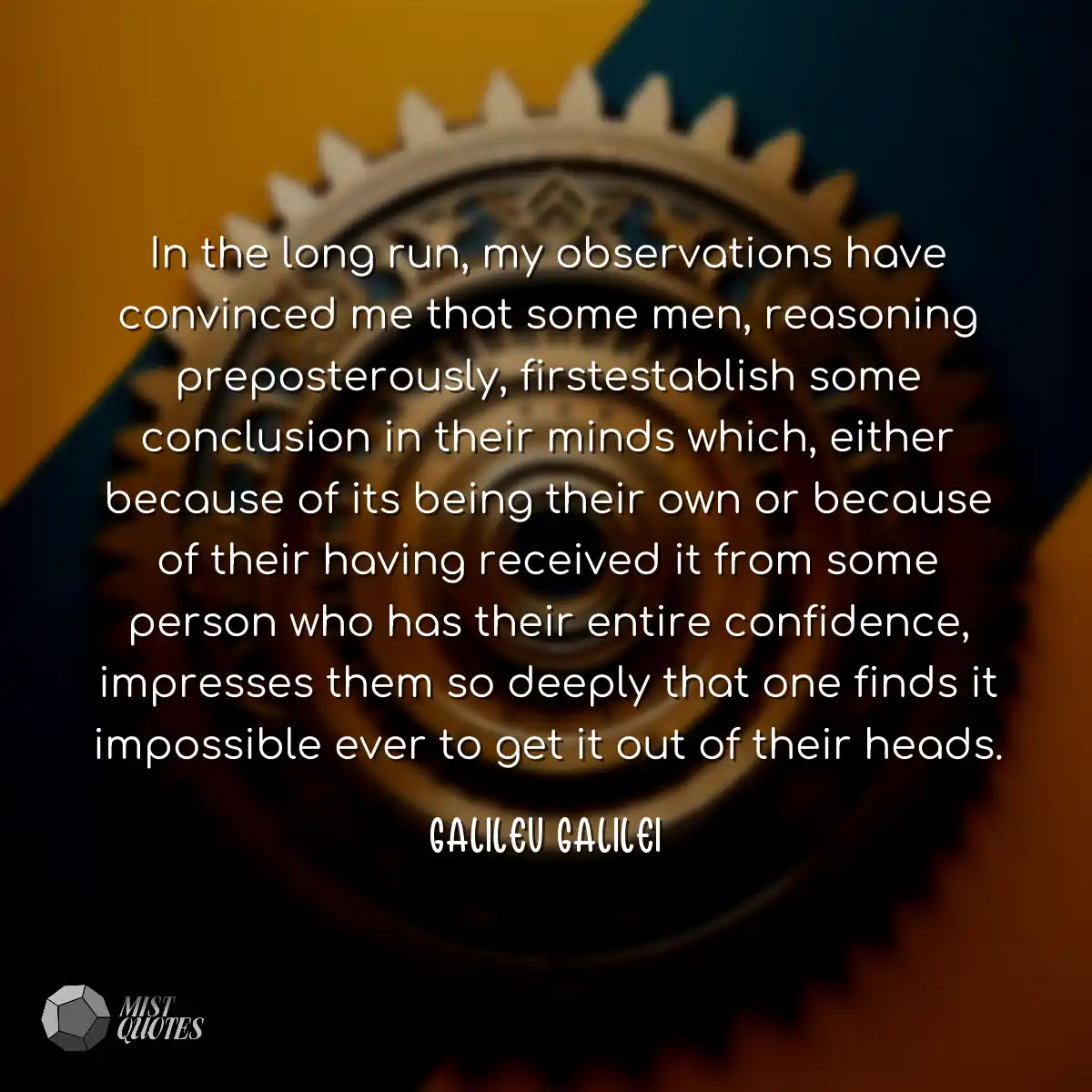
In the long run, my observations have convinced me that some men, reasoning preposterously, firstestablish some conclusion in their minds which, either because of its being their own or because of their having received it from some person who has their entire confidence, impresses them so deeply that one finds it impossible ever to get it out of their heads.
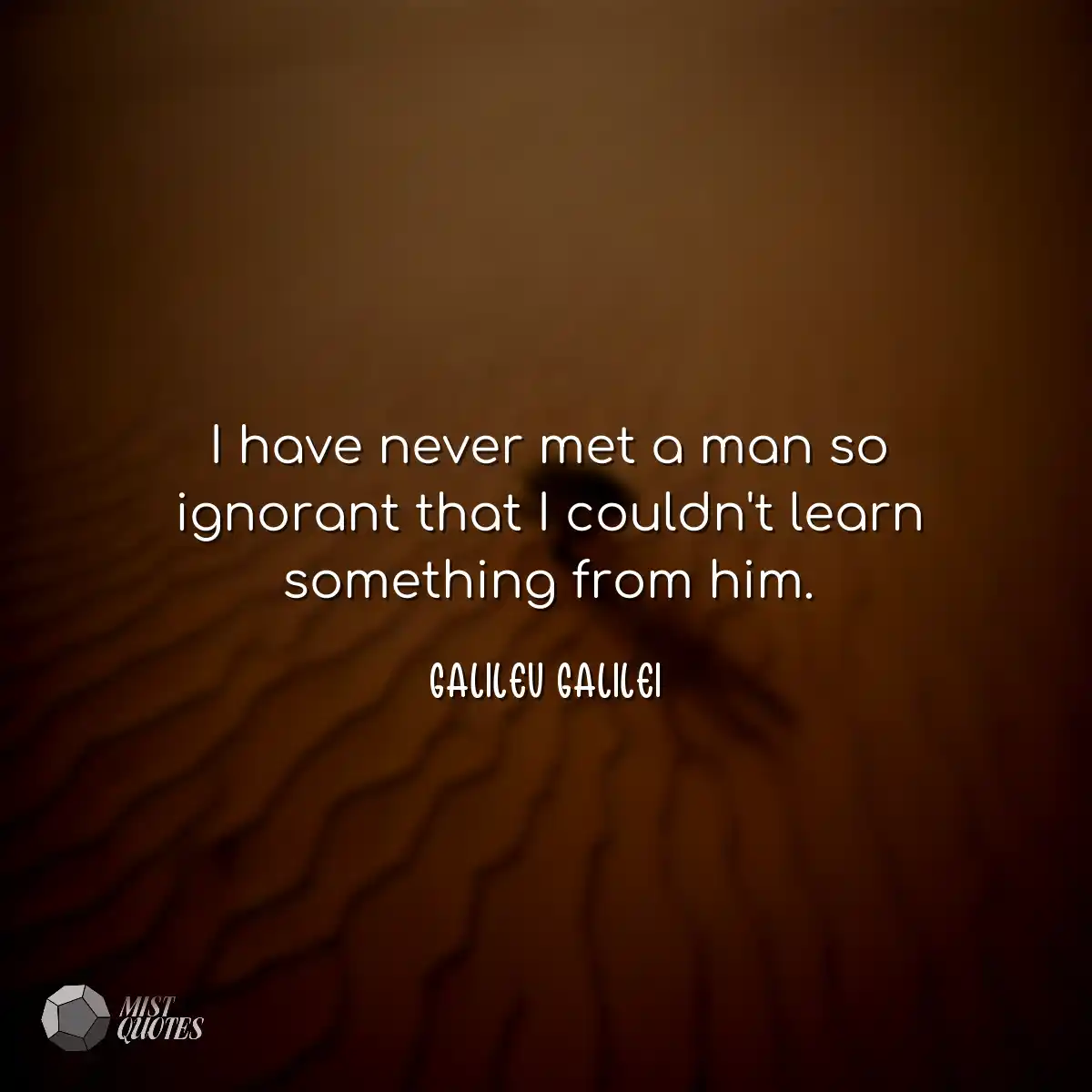
I have never met a man so ignorant that I couldn't learn something from him.

Mathematics is the language with which God has written the universe.
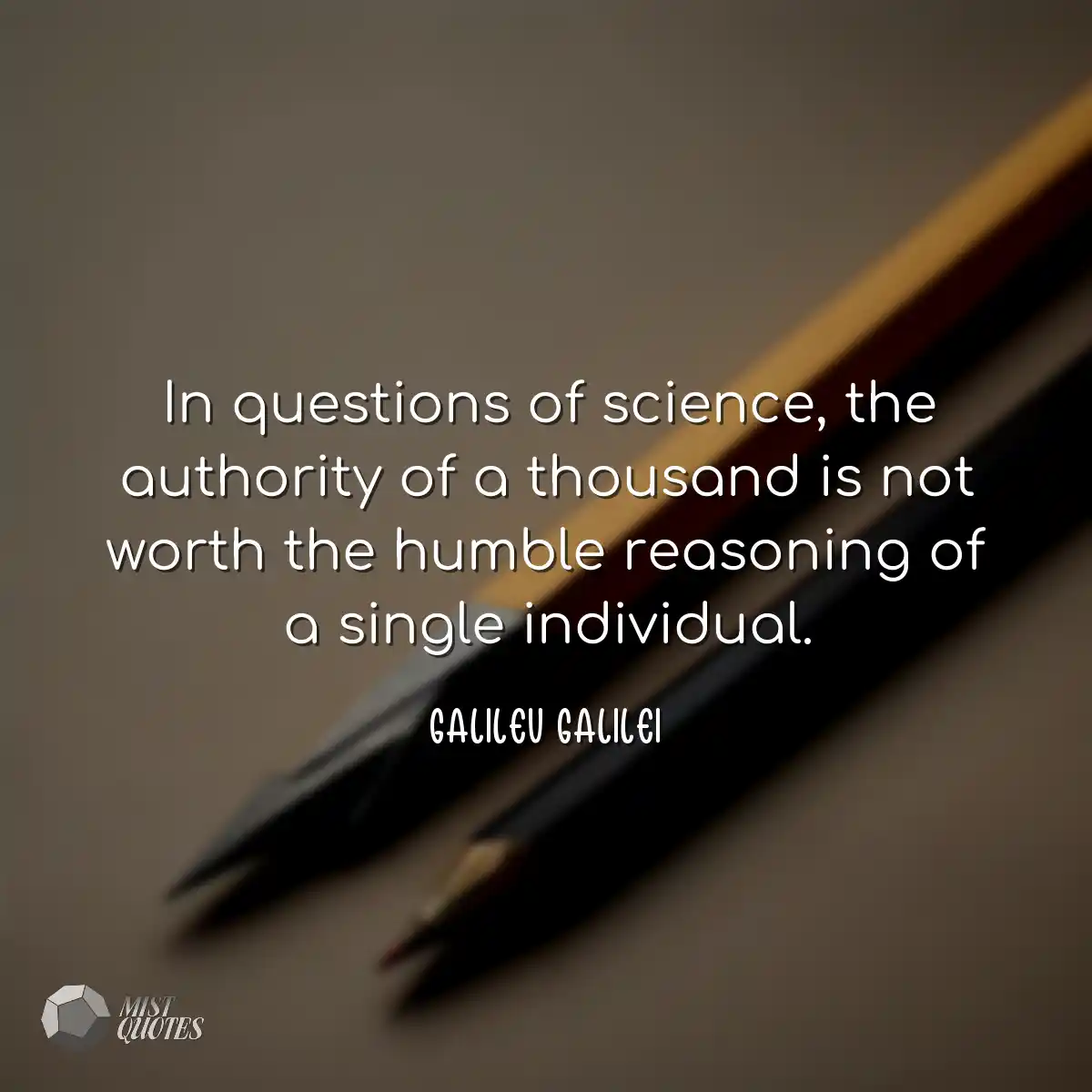
In questions of science, the authority of a thousand is not worth the humble reasoning of a single individual.
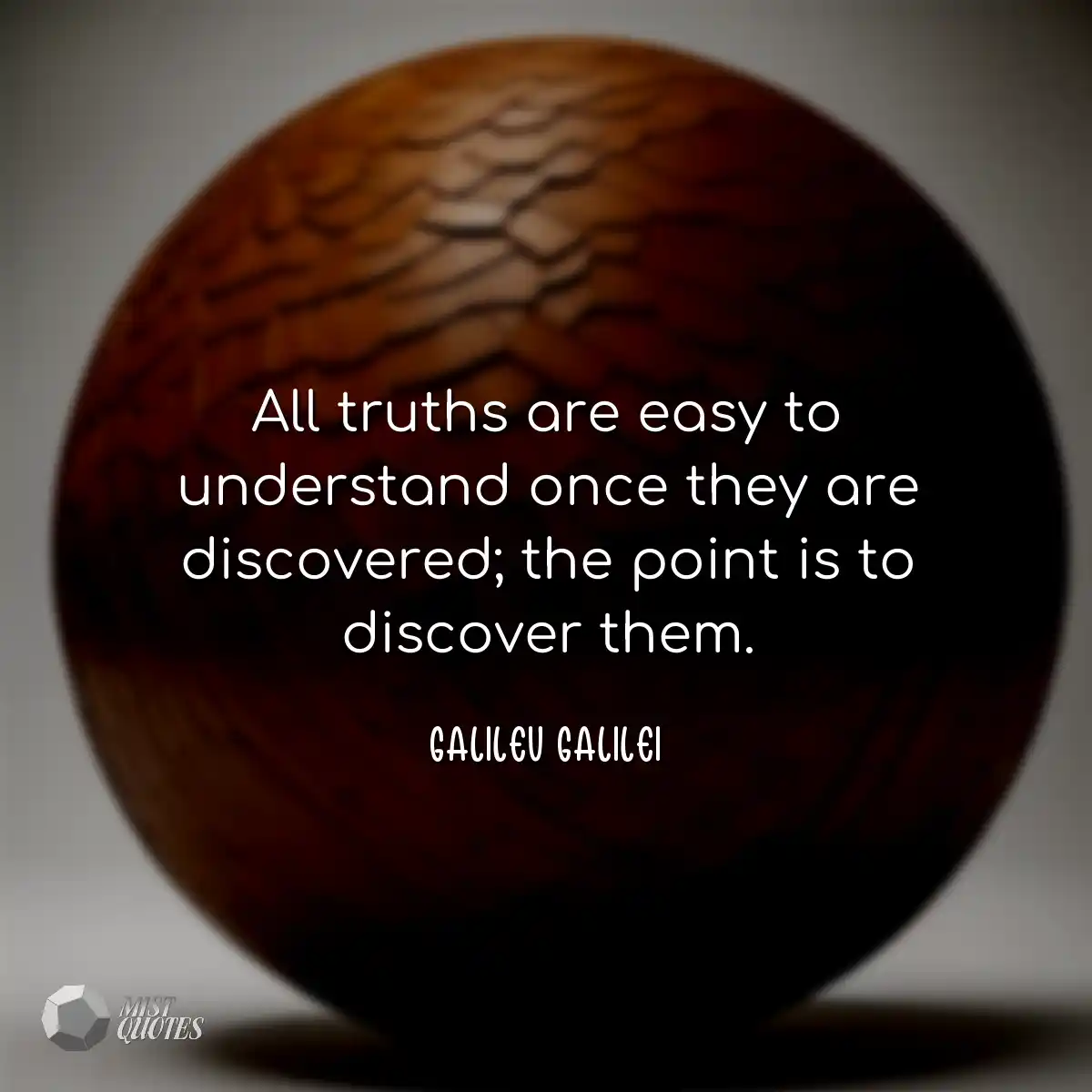
All truths are easy to understand once they are discovered; the point is to discover them.
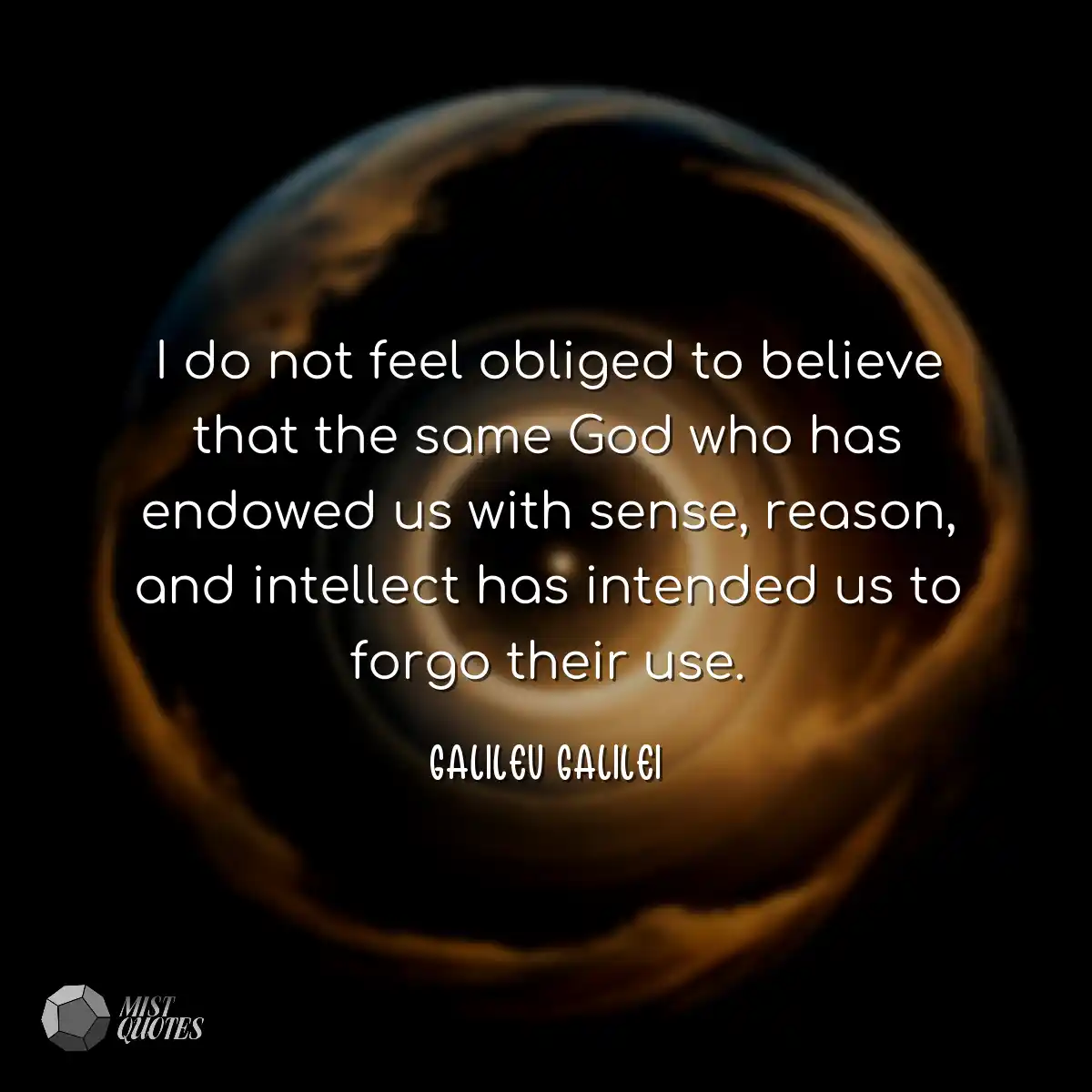
I do not feel obliged to believe that the same God who has endowed us with sense, reason, and intellect has intended us to forgo their use.

Measure what is measurable, and make measurable what is not so.
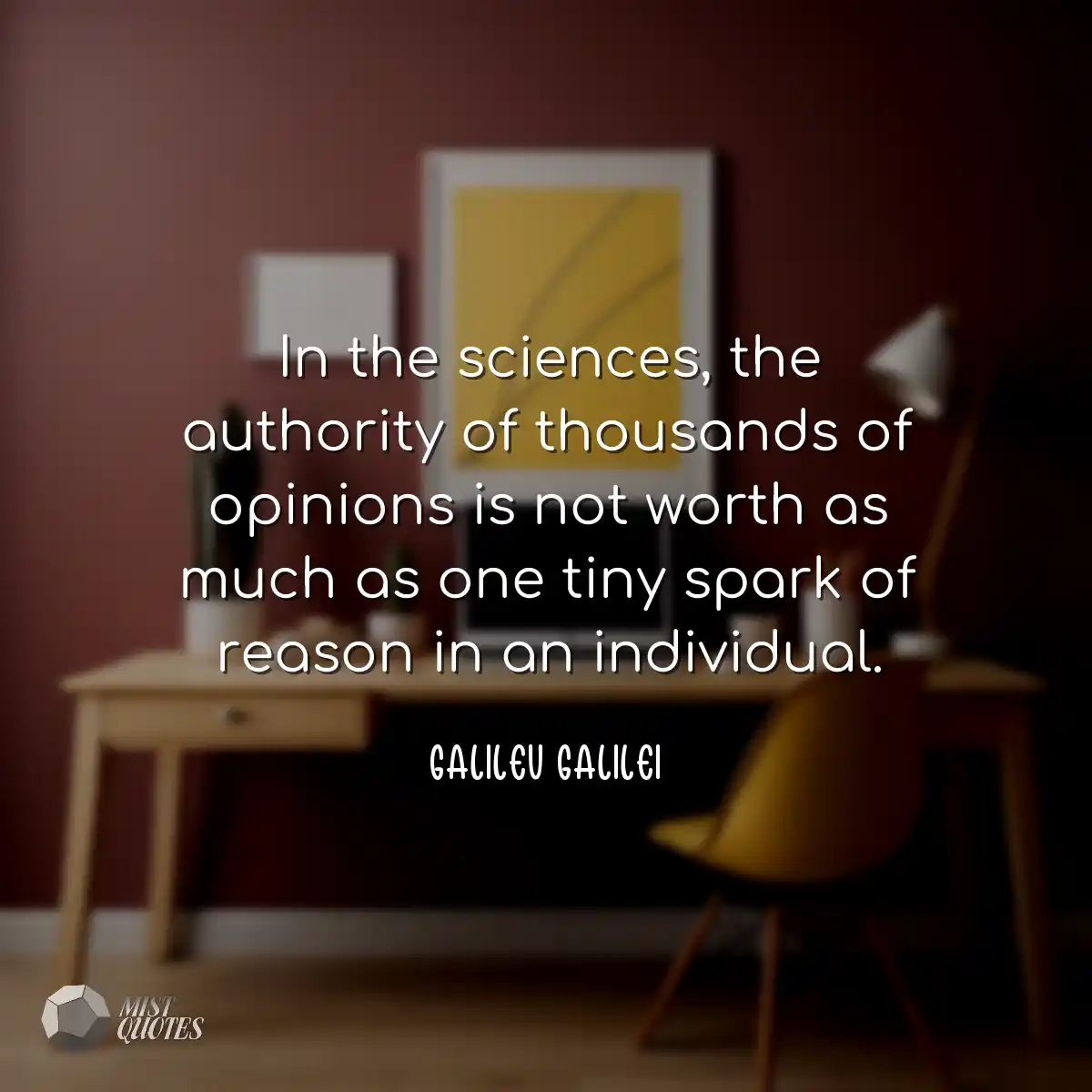
In the sciences, the authority of thousands of opinions is not worth as much as one tiny spark of reason in an individual.
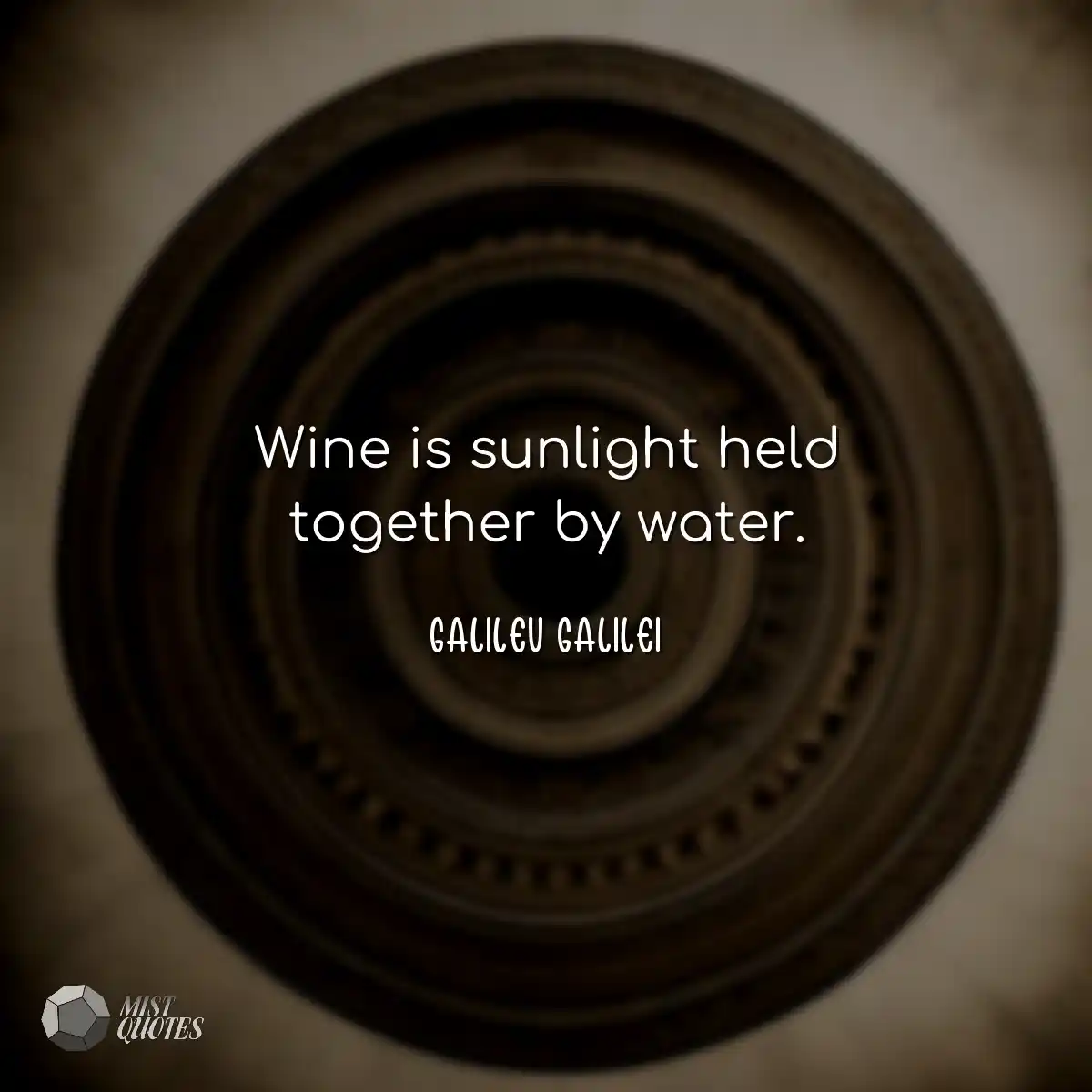
Wine is sunlight held together by water.

I have loved the stars too fondly to be fearful of the night.
Galileo Galilei, born on February 15, 1564 in Pisa, Italy, was one of the most prominent scientists and mathematicians in history. He is widely recognized as the father of modern science and made revolutionary contributions to the fields of physics, astronomy and mathematics. His experiments, observations and theories helped establish the foundations of the scientific method and transform our understanding of the universe.
From an early age, Galileo showed an interest and skill in mathematics and mechanics. He studied medicine at the University of Pisa, but his real passion was physics and astronomy. He soon began to question the accepted beliefs of the time and develop his own theories.
One of Galileo's most important achievements was his improvement of the refracting telescope. He built his own telescope in 1609 and began making detailed observations of celestial bodies. His discoveries revolutionized astronomy and confirmed Copernicus' heliocentric theory, which stated that the Earth and other planets orbit the Sun. His observations of the phases of Venus and the moons of Jupiter provided direct evidence against Ptolemy's geocentric model.
However, his discoveries were met with resistance by the church and traditionalist academics. Galileo faced fierce opposition and was accused of heresy for promoting ideas that conflicted with established beliefs. In 1633, he was tried by the Inquisition and forced to publicly renounce his theories. He spent the rest of his life under house arrest, but his scientific ideas and contributions had already left a lasting impact.
In addition to his contributions to astronomy, Galileo also made important discoveries in the field of physics. He studied the movement of objects and developed the law of uniformly accelerated motion, which is fundamental to modern physics. He also experimented with the pendulum and formulated the law of isochronism, demonstrating that the period of oscillation of a pendulum is independent of its amplitude.
Galileo Galilei left an impressive legacy for science and humanity as a whole. His courage in challenging established ideas and seeking the truth through observation and experimentation set the path for the development of modern science. His fight against opposition and censorship is a reminder of the power of critical thinking and the importance of defending scientific ideas in the face of adversity.
Although Galileo died on January 8, 1642, his contributions to science and his advocacy of the search for truth continue to influence scientists and scholars to this day. He is an iconic figure in the history of science, whose work and thinking revolutionized our understanding of the world. His scientific method based on observation, experimentation and the formulation of theories has been fundamental to the advancement of science.
Recent Quotes
"To help a friend in need is easy, but to give him your time is not always opportune."
Charlie Chaplin
"Life can be wonderful if you're not afraid of it. All it takes is courage, imagination… and a little dough."
Charlie Chaplin
